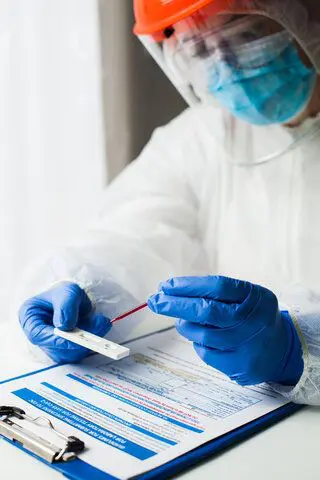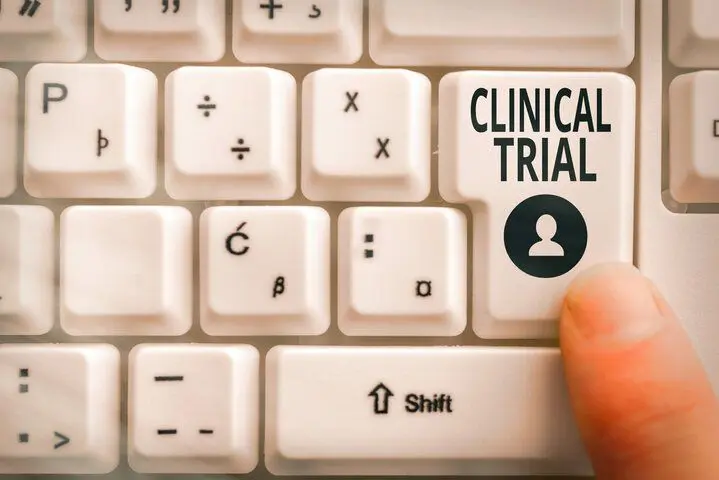If you’re looking to find clinical trials in Florida, it’s essential to understand the rigorous and thorough regulatory and monitoring processes that ensure these clinical research studies are safe and ethical. A clinical research study, including those involving blood testing and other medical assessments, undergoes stringent oversight to protect human volunteers and institutional review board, as well as to ensure scientific validity.
We’ll explore the regulatory bodies overseeing clinical trials in Florida, the approval and monitoring process, auditing and compliance checks, and the consequences and penalties for violations or misconduct. We want to emphasize that your potential involvement in clinical studies is not just about learning but also about making a significant impact on disease control and prevention. With this blog, we invite you to learn more about how you can get involved and contribute to this crucial cause.
Regulatory Bodies, National Institutes, and Federal Agencies Overseeing Clinical Trials in Florida

The Food and Drug Administration (FDA)
At the national level, the Food and Drug Administration (FDA) is the primary regulatory body overseeing clinical trials in the United States, including Florida. The FDA’s role involves:
- Reviewing clinical trial protocols to ensure they are scientifically sound and minimize risks.
- Monitoring ongoing clinical research trials for adherence to regulatory standards and ethical guidelines.
- Approving new drugs and treatments based on clinical trial data collection.
Institutional Review Boards (IRBs)
Institutional Review Boards (IRB), play a crucial role in overseeing clinical trials at the institutional level. Their responsibilities include:
- Evaluating and approving public health clinical trial protocols before they begin.
- Ensuring that the informed consent form is comprehensive and understandable.
- Monitoring ongoing clinical trials to protect the rights and welfare of healthy volunteers.
Florida Department of Health (FLDOH)
The Florida Department of Health (FLDOH) also plays a vital role in regulating clinical trials within the state. This regulatory body ensures that clinical trials comply with state-specific regulations and standards for Florida, providing additional oversight.
The Approval and Monitoring Process for a Clinical Trial in Florida
Pre-Trial Approval
Before a clinical trial can begin, it must undergo a rigorous approval process. First, a protocol for the clinical trial is submitted to the FDA and IRB. This protocol outlines the study’s objectives, methodology, participant criteria, and potential risks.
Next, the FDA and IRB review the clinical trial protocol to ensure it is scientifically valid and ethically sound. This review process often involves multiple rounds of revisions and clarifications. The FDA and IRB may require additional information and must decide based on the potential benefits and associated participant risks.

Ongoing Monitoring
Once approved, clinical trials are continuously monitored to ensure compliance with regulatory standards and procedures. Researchers must submit regular progress reports to the FDA and IRB into the results database, detailing any adverse reactions, protocol deviations, and overall study progress and effectiveness. The FDA and IRBs may conduct site visits regularly to inspect trial operations and verify compliance with the approved protocol.
Data Safety Monitoring Boards(DSMBs)
In addition to the FDA and IRBs, Data Safety Monitoring Boards (DSMBs) are often involved in overseeing clinical trials. These independent groups of experts periodically review the results database, methods, and effectiveness to ensure participant safety and study integrity.
Auditing and Compliance Checks
Routine Audits
Routine audits are a critical component of the oversight process. These audits involve a document review and site inspections. Auditors review study documentation, including informed consent forms, case report forms, and adverse event reports. Auditors will also visit clinical trial sites or the health clinical center to observe procedures, interview personnel, and verify that all regulatory requirements are met.
For-Cause Audits
In addition to routine audits, the FDA and other regulatory bodies may conduct for-cause audits in response to specific concerns or complaints from participants. These more focused audits investigate potential issues such as protocol deviations or data integrity—any deviations from the approved protocol that may impact participant safety or study outcomes. The FDA will also check that all data collected and uploaded to the online database during the trial are accurate, complete, and adequately documented.

Consequences and Penalties for Violations or Misconduct
Non-Compliance Consequences
Violations of regulatory requirements can have significant consequences, including study suspension, fines, or termination. The FDA or an IRB may suspend or terminate a clinical trial if it is found to be non-compliant with regulatory standards that were initially approved. Regulatory bodies also have the authority to impose fines and other penalties on public health institutions or study researchers found to violate the regulations.
Legal Actions
Legal actions may be taken for severe misconduct, such as fraud or unethical behavior, including criminal and civil lawsuits. Researchers or institutions involved in fraudulent activities may face criminal charges, resulting in imprisonment and substantial fines. Participants who have been harmed due to regulatory violations may also file civil lawsuits seeking compensation for damages.

Reputation Damage
Beyond legal and financial consequences, violations can severely damage the reputation of the researchers and institutions involved, impacting their ability to conduct future clinical trials and secure funding. The community may be less likely to participate in their trials, even if funding is secured.
When you find clinical trials in Florida, it’s reassuring that these studies are subject to comprehensive regulatory and monitoring processes designed to ensure patients’ safety, ethical conduct, and scientific validity. From the oversight of the FDA and IRBs to the stringent approval, monitoring, and auditing procedures of clinical researchers, every aspect of a clinical trial is carefully regulated. Understanding these processes highlights the integrity of clinical research and underscores the importance of compliance and ethical conduct in advancing medical science, fighting diseases, and discovering a new drug treatment.
Interested in Joining a Clinical Trial? Visit the South Florida Clinical Research Institute!
The South Florida Clinical Research Institute is dedicated to advancing medical science and improving patient outcomes through cutting-edge research and innovative clinical trials. We invite you to join us in our mission to transform healthcare. Whether you’re a potential research participant, a healthcare professional, or a supporter of medical advancements, your involvement is crucial. By participating in our studies, you contribute to developing new treatments and therapies that can change lives.
Please check out our Current Studies page or you can contact us at [phone_number] to learn more.
Read More:

